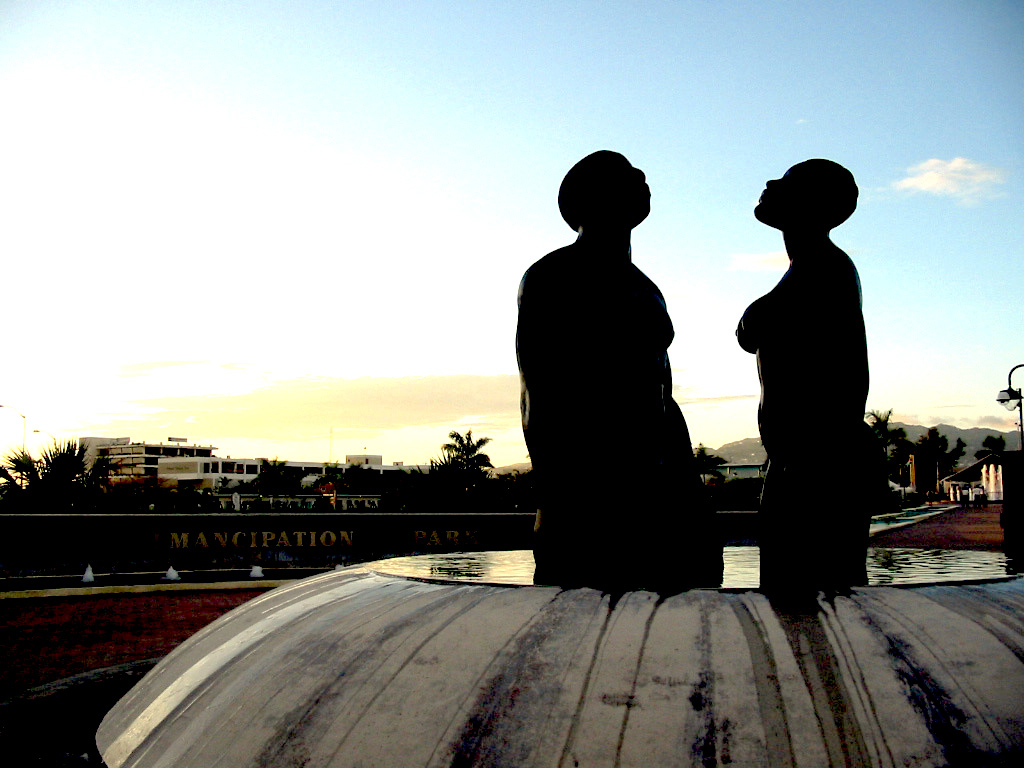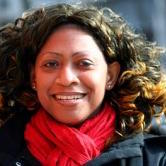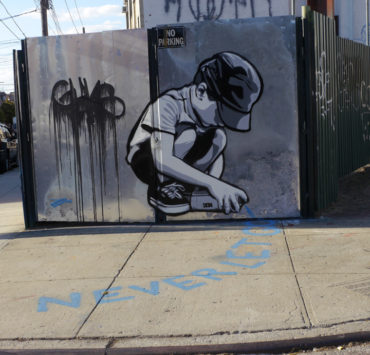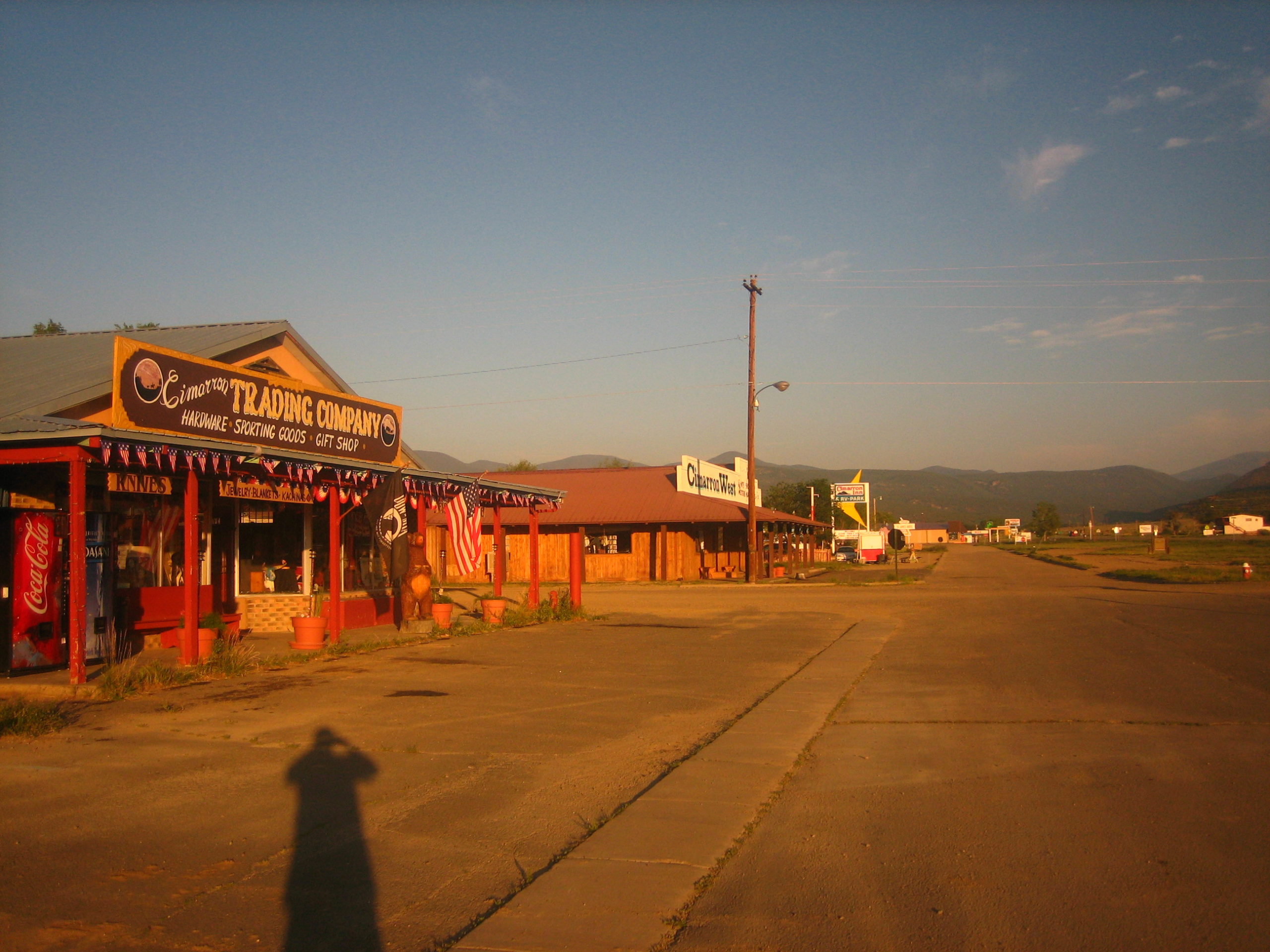
Sharon Leach was born in Kingston, Jamaica, and attended the University of the West Indies, Mona. She is a journalist, author, columnist, essayist and editor of Bookends, the Jamaica Observer’s weekly literary arts magazine. Her short fiction has appeared in Kunapipi, Journal of Postcolonial Writing; Iron Balloons: Fiction from Jamaica’s Calabash Writer’s Workshop; and Blue Latitudes: An Anthology of Caribbean Women Fiction Writers, the Jamaica Journal, Caribbean Writing Today, Calabash: A Journal of Arts and Letters, AfroBeat journal; and most recently in Pepperpot: Best New Stories From the Caribbean. Her essays have appeared in Air Jamaica’s Skywritings magazine and The Caribbean Voice newspaper. In 2011, she was awarded the Musgrave Bronze Medal from the Council of the Institute of Jamaica for distinguished eminence in the field of Literature.
Her first book, What You Can’t Tell Him: Stories, a collection of short fiction, was published in 2006 by Star Apple Publishers in Trinidad. Her latest, Love It When You Come, Hate It When You Go, was published by Peepal Tree Press in 2014.
She is interviewed by author/poet/visual artist Jacqueline Bishop.
Sharon, thanks so much for your second collection of short stories Love It When You Come, Hate It When You Go (Peepal Tree Press, 2014). The stories are very contemporary. Indeed they are set in what I would call the “now” Jamaica, and they are very urban, upwardly so. I guess my first question to you is, how representative do you feel these stories are of the average Jamaican in Jamaica?
Thanks, Jacqueline, for reading it and including me in your series of interviews. I really don’t know how representative my stories are of the average Jamaican in Jamaica. But I don’t know that my stories are necessarily required to be representative of any particular grouping of people. My first duty as a writer, I think, is to tell stories. And to tell them well. It’s really that simple. If you tell good stories, people who don’t necessarily share your background, race, social status, creed, whatever, will appreciate them. I tell stories about the world I live in now: I tell stories about people, especially women, who are trying to navigate their way through a world that’s vastly different from the one their parents came up in.
Your work has been credited with occupying “a new territory in Caribbean writing,” in so far as your characters “are neither the folk of the old rural world, the sufferers of the urban ghetto, or the prosperous brown and white middle class of the hills rising above the city, but the black urban salariat of the lands in between”. How did you come to carve out such a unique position for yourself in Caribbean literature? Why is it important to tell these stories?
This country has produced so many sterling writers, so I wonder why it is that I find there’s such a lack of writing that reflects the experience of these people, the urban salariat that I find myself a part of. Our stories were by and large not being told. So imagine my absolute delight when I first laid eyes on Colin Channer’s Waiting In Vain. I remember that book, written by a Jamaican, giving me permission, even as I was honing my craft, to write about an urbane world, one like the one I knew about, one in which there was a black intelligentsia, and where men and women discussed openly sexual mores, single women lived on their own in apartment buildings and entertained married lovers. This is the world I understand, the world that keeps me endlessly engaged. I have lots of stories to tell that are different from the stories that are described as typically “Caribbean”, the ones I grew up reading. My world wasn’t rural at all, and I would be disingenuous to write about life on a farm, for example. Or spending summer holidays in the country. Nor did I grow up in the ghetto. I can’t write about that stuff. The stuff of my life is seeing my parents work tirelessly to build a business and make a middle-class life for my sister and me, sending us to good schools, bundling us off for holidays abroad. But I also remember my family not quite fitting in with the denizens, the old-monied families, of those same hills in upper St Andrew where we eventually moved to when I was eight years old. This is where I’m coming from, and this, to a great extent, is where my characters are coming from, middle-class Jamaicans in multiple roles, who deserve to have their stories told too.
Secrets are at the core of many of these stories. Especially secrets involving sexuality and sexual encounters. Why this emphasis on secrecy and sexuality in your work?
I’ve always thought that if Jamaica were to be blown up in some horrific nuclear event, the only thing that would be left in the wreckage would be skeletons falling out of closets. Well, skeletons and the bloody cockroaches we can’t seem to get rid of! I don’t know one family that doesn’t have secrets. And oftentimes, these secrets are tied to sexuality: a husband who impregnated the helper; a wife secretly pining after her son’s college-age best friend; an underage daughter who’s sexually involved with her classmate; a son who’s keeping the secret of his parents’ business partners’ sexual proclivities; and other such permutations. I find it important to write about these things, however un-pretty they are, because if, as the American writer Alice Walker says, we are here not just to survive, but survive “whole”, then we have to look at things that oftentimes we’d rather look away from, and confront them.
Similarly, you explore what I guess can be characterised as a “transgressive sexuality” in many of these stories – particularly so between parents and their children. What is the commentary that you hope these stories make about sexuality? What would you say to the charge that this focus on transgressive sexuality is specifically sensationalist?
Real talk: I don’t think transgressive sexuality is as sensationalist as we’d like to believe. It is in fact very commonplace. But it’s ugly; we would rather not have to deal with it. I know three completely different sets of people who have admitted to me that they had, in their childhood, sexual relations with grandfathers. Admitted this in the most matter-of-fact way possible. So much so that I wondered, after the fact, whether I’d heard them correctly. In one of my stories, “Sugar”, from my first book, What You Can’t Tell Him, the mother knows what her daughter has done to make that extra money she hands her after she’s slept with the tourists, but she turns a blind eye and belts out a hymn that somehow absolves her of any guilt or responsibility. And I think this is reflective of recent headline-grabbing news stories about all those underage girls being found dead and pregnant, especially in small communities. Everybody knows what’s going on, or at least, they have a notion of what’s going on with these young girls and the older men who are abusing them. Why the secrecy and silence? Who benefits from it? Certainly not these young dead, pregnant girls in these communities. The secrecy and silence, perhaps borne out of shame, can only be deleterious to society. But, remember, it crosses borders, this secrecy and silence, appearing in middle-class communities, as well, which, in a sense, let’s just put it on the table, makes a mockery of the notion of class superiority and inferiority, doesn’t it? I think my work is very clear-eyed, and rather than aiming for sensationalism, if anything, simply addresses this silence wherever it occurs.
Is the character of Sugar in the story “Comfort” (in this your second collection) a carryover from the character of Sugar in your first collection? If yes, what do you find so engaging about that particular character?
Yes! I just made mention of Sugar from the first book. She does appear in “Comfort”, as well. She’s a character I happen to really love. Of all the characters I’ve conceived, she’s the one I can’t let go, and in fact, I’ve done an elaborate work-up on her, how she transitions to being the person she knows she has the capacity to become. She will appear in successive collections and we’ll see how she grows over the years.
I don’t know why I love Sugar so much. Actually, I’ve come to love her. I didn’t really before because that story was always the story I was asked to contribute to anthologies. And I was always annoyed because I felt like my other stories, of which there are many, were being overlooked. But in time I came to see the character’s allure. This character is unlike most of the people of my stories who are already upwardly mobile in their lives. Sugar is poor. Her family is poor, like, seriously poor. There is a lot of shame and, yes, secrets, surrounding them. But she is determined, although she makes many missteps, to become someone she can be proud of. I guess I’m fascinated by the potential journey. I plan to stay with that character until I can’t write anymore about her.
Your work also seems, for lack of a better word, “episodic” and located in an immediate encounter. These stories rarely progress beyond the moment. Is this a factor of the form (short stories) that you are working in? Do you believe that a form such as the short story can incorporate a more expanded narrative of years, decades even, this despite the brevity of words?
I do realise that my work is episodic; it’s something my mentor, the late great Wayne Brown, and I spoke about. He always wanted to see the way I’d deal with a story that unfolded over a stretch of time. And in fact a story I wrote, not in either story collection, Thursday Evenings with Donald, was in answer to a challenge from him. It catalogues the tender love affair a spinster lady has with a married man, over many years. Wayne was particularly fond of this story because it not only covered a long time span, but it also employed the omniscient for point of view, which was a POV Wayne dearly loved, and which isn’t often used by us “modern” writers. So, yes, the short form does and can lend itself to an expanded narrative, and for the next collection I am consciously working on making the time span of the stories longer.
Your characters move easily between the island of Jamaica and other spaces outside of the island. Is this a commentary on your part on the spread and proliferation of Jamaican culture – and a recognisable global Jamaican identity – outside of the island? Also, am I correct in my reading that many of the characters in your stories are filled with anxiety and their anxiety, it seems, is laden with trying to prove how cosmopolitan they are, not only to themselves but to a larger world?
You know, Jacqueline, these people have no such lofty concerns. I travelled every summer since I was 10, and sometimes also at Easter or Christmas. It was just the way it was. I had classmates who packed up and went to visit relatives in the country. That wasn’t part of my reality in the 70s, 80s and 90s. My country relatives and our family, on both my parents’ sides, were, well, estranged. But the friends and “courtesy” relatives who lived abroad were who we were close to. It wasn’t about expressing a global Jamaican identity outside the island. I don’t think that was even a thing back then! It was simply what you did if you were in a certain social milieu. That fluidity of being here one day and waking up somewhere overseas the next is, I suppose, just me projecting onto the characters. But I think that’s happening more these days, however: Jamaicans are unquestionably cosmopolitan. Jamaica and Jamaicans have definitely become a global brand.
Many of your characters seem contained in a middle class bubble – as seen most clearly in the story “A Mouthful of Dust” – where issues of everyday survival do not trouble them. Furthermore, when members of what can be called the lower class show up in your work they are often compromised, angry or violent. Is this a commentary on class and racial politics in Jamaica?
Again, I don’t like the idea of making deliberate class, racial, or even political, statements. I’m not an anthropologist; I don’t give reports about the ills of society; I don’t make judgments. What I am is a writer, and consequently, my duty is to tell the truth, to simply hold a mirror up to the society — hey, this is what I see going on here, are you seeing this? — and the society can make what it will of what it sees in that mirror.
I know that you have worked as the editor of Bookends for several years now, showcasing the talents and voices of not only Jamaican writers, but writers in general. Can you speak to the importance of the publication in fostering an appreciation for writers and literature in Jamaica, and beyond? What kinds of work do you aim to showcase in Bookends?
This year Bookends turned nine; I am amazed about this! When it started I was convinced it wouldn’t have lasted six months. A magazine with the name Bookends was always, as far as I was concerned, going to be a hard sell in a landscape not readily identifiable with a big reading culture. As you can see, I was wrong! Books and literary pursuits are slowly and steadily coming to the forefront in Jamaica, and I’d like to think that Bookends has had some small part to play in this! Over the years the magazine has been scaled down somewhat, in line with the paper trying to keep production costs down. Still, we soldier on. I love what I do. I think, as does the Jamaica Observer, that it is an extremely important forum not only for readers, but also for writers, as we provide a platform for them — those from the region in general and Jamaica in particular. I remember when I was first published in the Literary Arts, the publication that predated Bookends. It was the first time I’d been published anywhere; how thrilled I was! That was where I found my voice and where I started to hone my craft, under the expert guidance of Wayne Brown, who was the then editor. Where would I be today if I hadn’t been afforded an opportunity such as the one Wayne gave me? So I think a publication such as this one is vital for identifying new voices, new talent. It’s also good for more established writers, so they can connect with their readers. It’s also a great way to keep abreast of books, locally and internationally, and it provides a platform for book reviews, as well, as a way of disseminating information on launches, news and keeping them up to speed on literary festivals and competitions, which are becoming increasingly important for our writers to get involved with as we establish our presence on the literary world stage.
As it concerns the writing published in the magazine, if the writing is clichéd, forget about it. I’m open to work that showcases fresh perspectives, unique voices that will make me get excited and sit up and take note.
Finally, what is Sharon Leach working on these days? Can we expect, for example, to see a novel from you?
Ah, sweet mystery of life! But seriously, Jacqueline, I really do want to write a novel. And I’m pretty sure I will someday. I have so many ideas rolling around in my noggin. But for now, I’m slowly collecting again for another short-story collection. More immediately, however, I’m expanding my portfolio and building my résumé as a screenwriter. I’m presently working on a screen adaptation for my story “Sugar”, which is a wonderfully enriching and fulfilling experience. I told you how much I love that character; I can’t wait to see her on the big screen!

The River's Song is Jacqueline Bishop’s first novel. She is also the author of two collections of poems, Fauna and Snapshots from Istanbul. Her non-fiction books are My Mother Who Is Me: Life Stories from Jamaican Women in New York and Writers Who Paint/Painters Who Write: Three Jamaican Artists. An accomplished visual artist with exhibitions in Belgium, Morocco, USA and Italy, Ms. Bishop was a 2008-2009 Fulbright Fellow to Morocco; the 2009-2010 UNESCO/Fulbright Fellow; and is a full time Master Teacher in the Liberal Studies Program at New York University.







